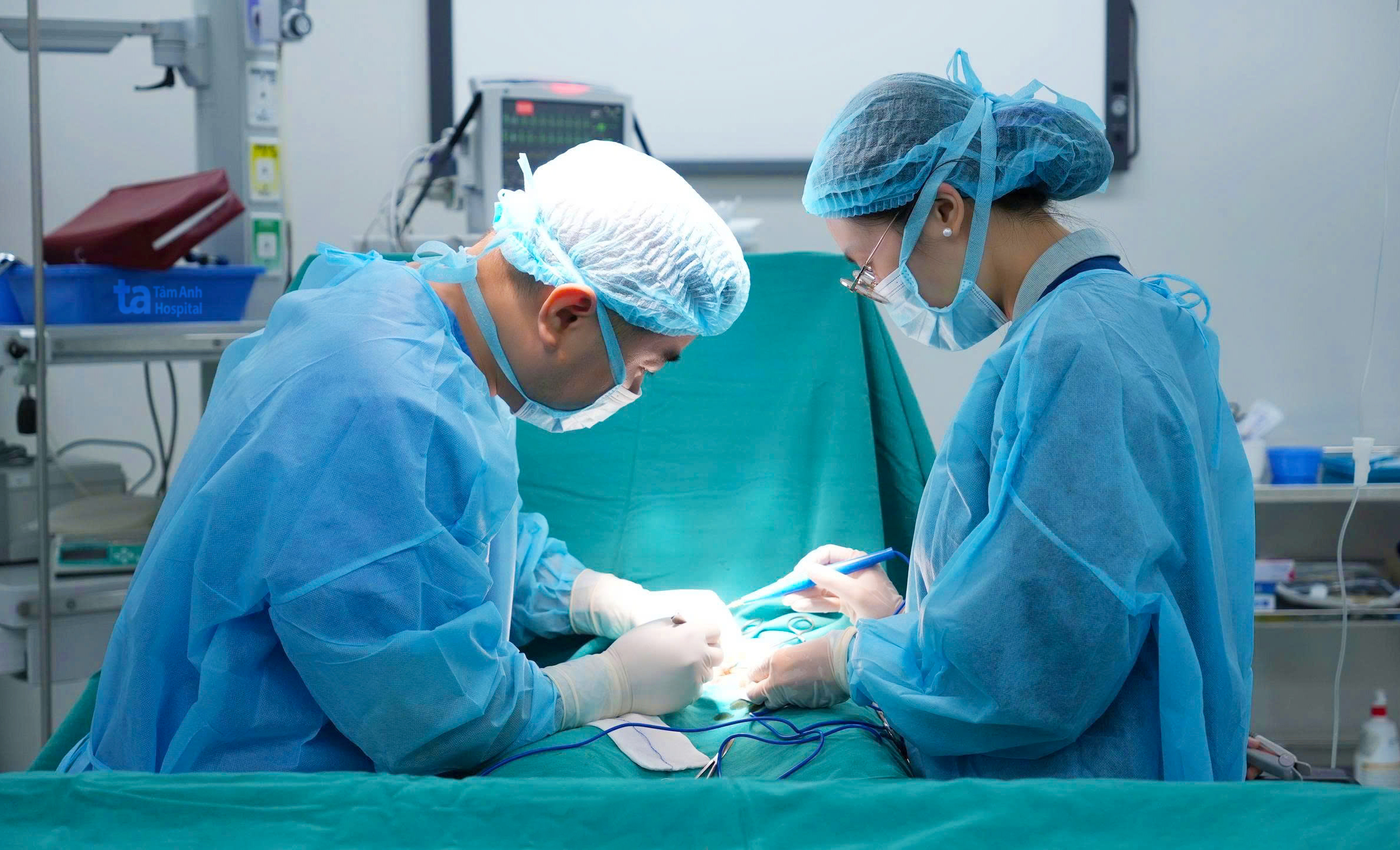Circumcision is often recommended for young children or adult men with phimosis or a long foreskin. It's a common procedure with numerous benefits, including improved hygiene, reduced risk of infection, and enhanced quality of life.
Dr. Nguyen The Truong, Deputy Head of the Department of Urology and Andrology at Tam Anh General Hospital in Hanoi, explains that despite its safety, circumcision carries a small risk of penile adhesion, where the separated foreskin reattaches to the glans. The risk depends largely on post-operative care, individual constitution, and the patient's age.
Improper dressing changes and hygiene can lead to complications. After surgery, the glans and surrounding skin are vulnerable to injury, ulceration, or infection if not kept clean. These issues can cause adhesions. Inadequate daily hygiene can leave behind debris, urine, or secretions around the incision, creating a breeding ground for bacteria, leading to infection and adhesion.
Neglecting to retract the skin after surgery also contributes to adhesion. During healing, doctors advise patients to gently retract the foreskin daily to prevent it from sticking to the glans. Parents of young children, fearing pain, may skip this step or do it hesitantly, significantly increasing the risk of adhesion, especially in children prone to keloids or with a history of balanitis. Parents should gently retract the foreskin daily for 5-7 days after the incision has stabilized.
 |
A doctor performs a circumcision. Photo: Tam Anh General Hospital |
A doctor performs a circumcision. Photo: Tam Anh General Hospital
Balanitis, or inflammation of the foreskin, further increases the risk. Inflammation stimulates skin tissue growth and the formation of fibrous bands, leading to adhesion between the foreskin and glans. Balanitis can be caused by tight underwear, irritating soaps, or poor hygiene.
A predisposition to keloids or fibrous adhesions plays a role as well. Some individuals are naturally prone to these types of scarring, which represent an excessive healing response. Even with proper care, these individuals remain at risk. Children have a higher tendency for adhesion than adults due to the rapid growth of their skin and mucous membranes and increased connective tissue production.
Dr. Truong advises keeping the surgical site dry, clean, and applying prescribed ointments, usually antibiotic or mild steroid creams. Patients should avoid tight underwear and excessive friction. Adults should abstain from sexual activity until the wound heals completely.
Patients shouldn't be overly concerned about penile adhesion after surgery. It's easily treatable and rarely causes long-term health problems. Minor adhesions without symptoms can be managed with gentle retraction at home, combined with hygiene and anti-inflammatory/anti-scarring creams. Severe adhesions require surgical separation under local anesthesia, a quick, minimally painful procedure with a short recovery time.
Hoai Pham
| Readers can submit questions about men's health here for doctors to answer. |












